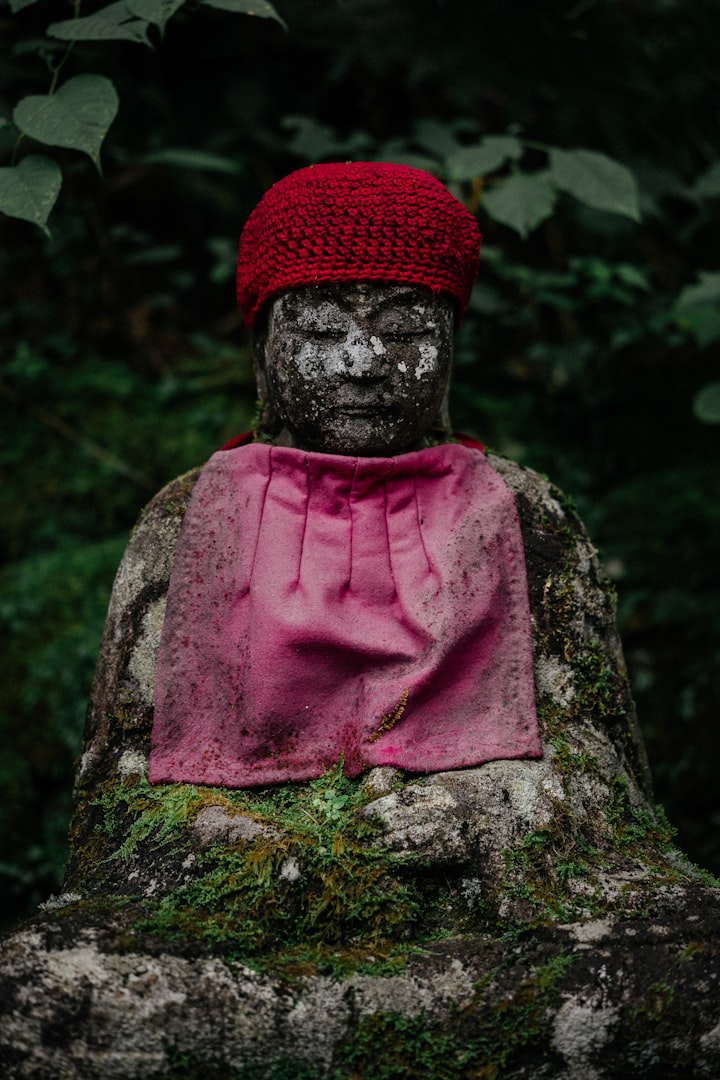
Every year, my mother entered the local hog calling contest. After 60 tireless attempts, she never won.
For weeks leading up to the Iowa State Fair, she would practice in the barn, her voice somehow never giving out.
The fair always drew a few outlier attendees from far and wide, but the bulk came from more neighborly regions. We hailed from Ira, a community in Jasper county with an impressive population of about 35.
It always bothered me that the few city visitors seemed to win more contests than the locals. Hog calling became more about who can get the crowd going rather than the calling itself, and I think out-of-towners bring a certain freshness the judges love.
Each year was pretty much the same. I would sit towards the back and watch each contestant have their shot, judging them as I imagine I would judge a pig. I'd assess the soundness of the way they moved, looking for fluidity in their joints as they walked on stage, mentally giving extra points for contestants who landed with toes pointed in the same direction. I'd give additional bonus points for stout legs.
Ma had a look all her own. She had droopy eyes, with tight cheeks that squeezed out a puffy moat around those eyelids that never quite regrew her cancer-plucked eyelashes. She had pudgy toes and jowls that danced. She wore simple denim most summers. You couldn't tell by looking, but Ma was smart.
She was also full of energy, at least most times. But something seemed to happen to her when she entered the contests, because she'd freeze up in anticipation. Each year, she sat quietly waiting for her number to be called, then she'd go up on stage, holler, and scoot off. She never really smiled. She never let loose.
Last year I decided I would try to help.
One afternoon, while she was in the middle of a barn practice period, I decided to go in.
"Ma?" I knocked.
I didn't see her.
"Yes Esther?" I heard her voice seeping through the milking parlor, softly making its way past the insulation of chicken clucks. I opened the empty central stall's gravity latch and ducked through to find Ma sitting face toward the wall of the milking parlor.
"Can I sit with you?"
"Sure, sweetheart, but I'm practicing."
"I know you are. I'm proud of you."
She chuckled. "Nothing to be proud of yet dear."
"Well, I'd like to be with you."
"Tell me what you think...here...sit." She lifted a metal chair and dropped it in the center of our hallowed milking parlor. She squared off her stool and the unfolded chair. We sat for a moment, smiling, perfectly centered below the slats of pine that supported the hayloft above.
She started screeching like a pig.
"That was good. Maybe try one long screech, one short, and one funny one…saying, like, 'oink' or something--just to give 'em some variety?" I was brainstorming.
She looked at me with a soft smile.
"LBE..." she would still call me, which stood for "Little Baby Esther" (most times it just sounded like "Elbie"). "I feel terrible."
"Why's that?"
"Because I can't talk to you. I can't think of things to say."
"I just want to be here with you." I held her hand.
"Where's your father?" she asked.
Ma had Alzheimer's disease. A few months ago I started noticing the early signs. It was still pretty early, so I was getting used to the whole label of it all, rather than the hopeful "somethings up" stage, but she was certainly starting to go. It was most apparent with the questions like this that didn't make sense.
The way I liked to put it, Ma had gotten too close to time. And time can be a cruel companion. It steals back the gifts it gives. And I knew, sitting here in the softly lit milking parlor, that the woman I looked at with shadows of slats cutting across her face, wasn't the woman who raised me. It was like time was taking her away from me before death could. It was painful. But at this point, Ma still remembered the hog calling contest. So we practiced. And we were probably the only people in the history of the fair to practice a hog calling contest like so, but we did.
For three weeks leading up to the contest, we got into a routine of practice and occasional repeat conversations. I sat watching her squeal each day for about an hour before I'd shuffle her off to eat some lunch. She would talk about the fair most meals. It was when she seemed most herself. It made me very happy.
I remember one day she seemed to be slightly escaping the cruel company of time.
"Ma, this year I want you to really try to let your personality shine. Listen, I got you this pig hat. I thought it would be a fun way to make you stand out a little."
She squealed and flashed her teeth. Her smile felt like the real her. It was always a guessing game of who would show up each meal, Ma or Alzheimer's. This day it was Ma.
She then whispered, "You know, Elbie, I never said it enough, but I love you very much. And I'm glad you're helping me get ready for the fair. It'll be fun."
I tried to reflect on Ma's life as much as I could between practice periods, as if to somehow imbue more of it back into the body that housed her fading memory. Sometimes I would think about how Ma had never won anything in her life, which made me realize neither had I.
Sometimes I would then get mad at the fact that she had never won anything. The hot stickiness of anger I would feel would bubble up in moments of contemplating the shallowness of our world. How contests are no longer about the contest. It's now about how people dress. How people look. Where people are from. How the judges feel. The particular lilt in the speaking voice of a contestant that's soothingly familiar to a judge. The charisma. The confidence. The story that they share. And how much the story resonates with a judge. Basically, a crapshoot. What happened to good-ole who-did-it-best contests? That's one my mother could win. Not everyone can share their story in full. Not everyone has the capacity to fully show up themselves.
And that was just the thing about the contest: the crowd can't see her Alzheimer's. They can't see her stage fright. They can't see the hours she spent practicing.
But they can see someone who convinces everyone to clap along. They can see someone (who likely entered on a whim) bounce on stage with the vitality of youth. Judges can see happiness--and they reward it. Which is so backward, because usually happy people don't need the ribbons in the first place. Or at least it would be more meaningful to give it to someone who could use something to smile about. (Which is, of course, hypocritical for me to say...asking for it to not be about someone's story and all...but you get what I mean!)
My misplaced grief and rage would spill out occasionally in many different areas. But I found it odd I would keep coming back to her losing streak—as if it had any correlation to anything relevant.
I took the judges' past choices personally, but Ma was fine calling nonetheless. She enjoyed the fun of it. I guess it was me who wanted her to win. I guess it was some sort of odd way to validate that she mattered, when I kept feeling like the world only noticed big personas and big people who trudged through the noisy life of cities. I wanted others to see we were worth something too. I felt like if Ma won this year, it would also reflect that people saw through her disease and recognized the liveliness that I knew—and prayed—was still encased within.
Mother declined quite a bit in the three weeks of her hog practicing, but she still loved to talk about the fair. She'd lose her shoes, and get lost on the way to bed, but boy could she talk about the fair.
So the hours in the barn became my favorite. Behind the animal stalls in that milking parlor, I got to see her alive and free. We didn't have cows on our farm, so it made for a wonderful place to just be. Like a stage of our own.
Finally the day of the fair came. We waited eagerly on the edge of what looked like pews in the audience. Ma was having a good day, and seemed to be mostly there; she was smiling and nervous. She hadn't remembered how we got there, but it was as if the years of going to the fair had her conversation ready, like auto-pilot.
"Elbie, you think I got a real shot at it, huh? Oh, lord. This is so exciting! What fun. Remember last year when Debra won? Everyone all gathering and hollering. What fun. Go and grab your father and make sure he doesn't miss it!"
Before we knew it, they called her number. I wheeled her up, patted her little pig hat, gave her a smile and thumbs up, and left her to shine.
With stout legs and toes aligned, she screamed, "Ooooweeeeeeee!"
Everyone smiled and clapped, but I was teary. Still, I headed over and lifted her arms to wave herself off stage. Then I placed the dangling webs of her skin around my shoulder and hugged her. I knew I would miss the weeks of practice.
My mother lost again that year.
I guess the contest left me a little bitter. I didn't want her to win a sympathy ribbon, so we didn't tell the judges about her condition or anything (Ma was pretty private about her illness anyhow). But part of me thought maybe she'd win. I thought maybe they'd see through the illness they didn't even know she had. Maybe she'd win this silly little popularity contest. And just maybe I'd get that memory of her smiling in shock...that after 60 years, she finally won.
It seemed a bit unnecessary to compare her to the city-traveling spunky teen who won, but I couldn't help it. Ma passed away three short months later, and I was left angry with Time. I was angry to not have the memory of us winning. My mom losing her memory made me appreciate the delicate nature of my own, and while I know she did it for the fun of it all, I still wanted to win a new memory while I lost her.
One evening of missing her a bit more than usual, I decided to go back into the barn. I went into the milking parlor for the first time since she passed, sat and imagined her. In the treasured alertness of remembering, I noticed an old little ladder in the corner that led up to the hayloft. I decided to investigate.
I cautiously climbed up to find a storage box. I found old pictures inside. One was of my mother and father from the year he died. She looked so young and happy. They were at the fair, taking a break from their busy farming duties, smiling and posing with their friends who had won a ribbon that year. And I thought to myself, “my parents look happier than the winners.”
I wept with gratitude of her memory and wondered if I could ever be just as happy as Ma had lived without ever winning.
About the Creator
MG
Writer






Comments
There are no comments for this story
Be the first to respond and start the conversation.